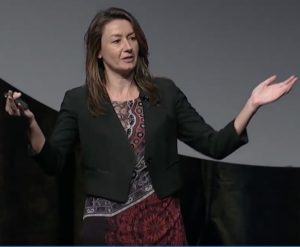In this Invited Talk from SC19, Karen Willcox from the University of Texas presents: Predictive Data Science for Physical Systems: From Model Reduction to Scientific Machine Learning.
Achieving predictive data science for physical systems requires a synergistic combination of data and physics-based models, as well as a critical need to quantify uncertainties. For many frontier science and engineering challenge problems, a purely data-focused perspective will fall short — these problems are characterized by complex multi-scale multi-physics dynamics, high-dimensional uncertain parameters that cannot be observed directly, and a need to issue predictions that go beyond the specific conditions where data may be available. Learning from data through the lens of models is a way to bring structure to an otherwise intractable problem: it is a way to respect physical constraints, to embed domain knowledge, to bring interpretability to results, and to endow the resulting predictions with quantified uncertainties. This talk highlights how physics-based models and data together unlock predictive modeling approaches through two examples: first, building a Digital Twin for structural health monitoring of an unmanned aerial vehicle, and second, learning low-dimensional models to speed up computational simulations for design of next-generation rocket engines.
At SC Invited Talks, you will hear how translational research and technologies and their applications address some of the most complex challenges of our time. These talks will provide insights with a broad context and from a longer-term perspective.
Karen E. Willcox is Director of the Oden Institute for Computational Engineering and Sciences, and a Professor of Aerospace Engineering and Engineering Mechanics at the University of Texas at Austin. She holds the W. A. “Tex” Moncrief, Jr. Chair in Simulation-Based Engineering and Sciences and the Peter O’Donnell, Jr. Centennial Chair in Computing Systems. Before joining the Oden Institute in 2018, she spent 17 years as a professor at the Massachusetts Institute of Technology, where she served as the founding Co-Director of the MIT Center for Computational Engineering and the Associate Head of the MIT Department of Aeronautics and Astronautics. Prior to joining the MIT faculty, she worked at Boeing Phantom Works with the Blended-Wing-Body aircraft design group. Her research has produced scalable computational methods for design of next-generation engineered systems, with a particular focus on model reduction as a way to learn principled approximations from data and on multi-fidelity formulations to leverage multiple sources of uncertain information. She is a Fellow of the Society for Industrial and Applied Mathematics (SIAM) and Fellow of the American Institute of Aeronautics and Astronautics (AIAA).





